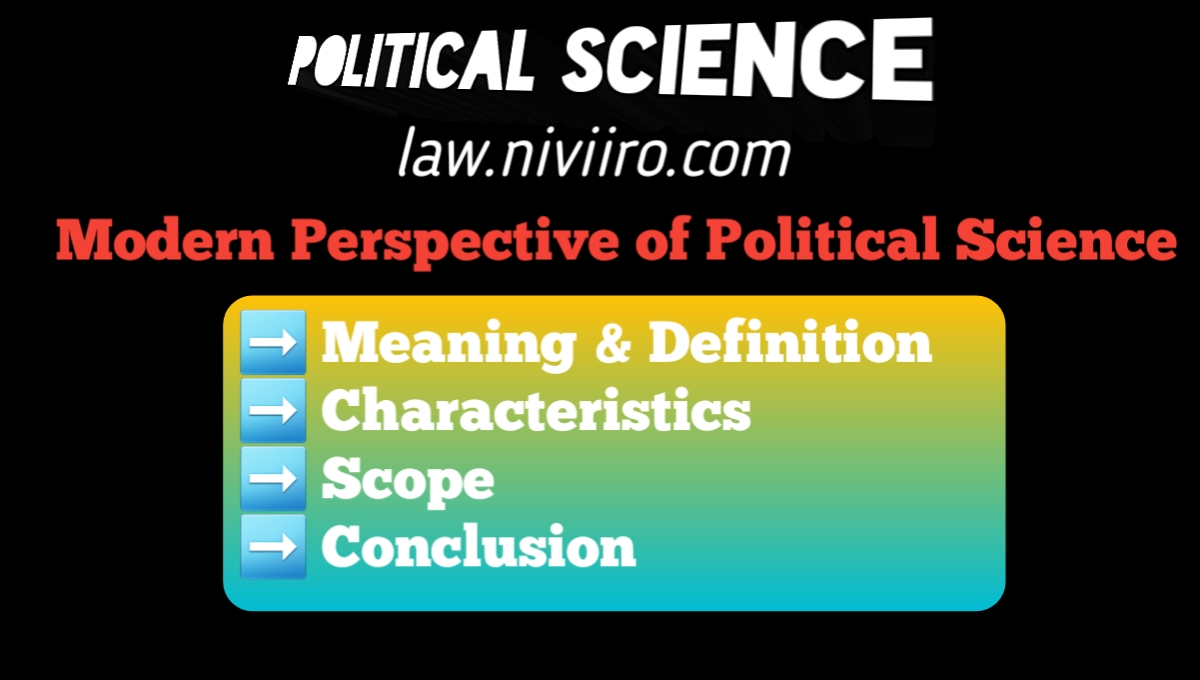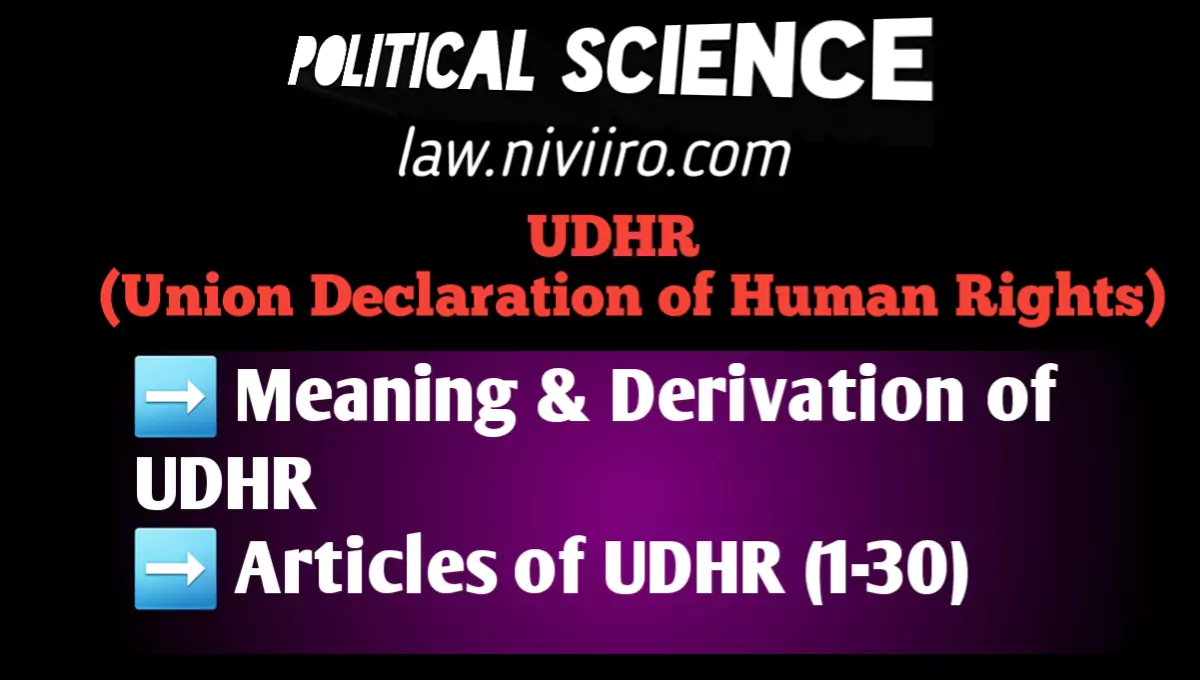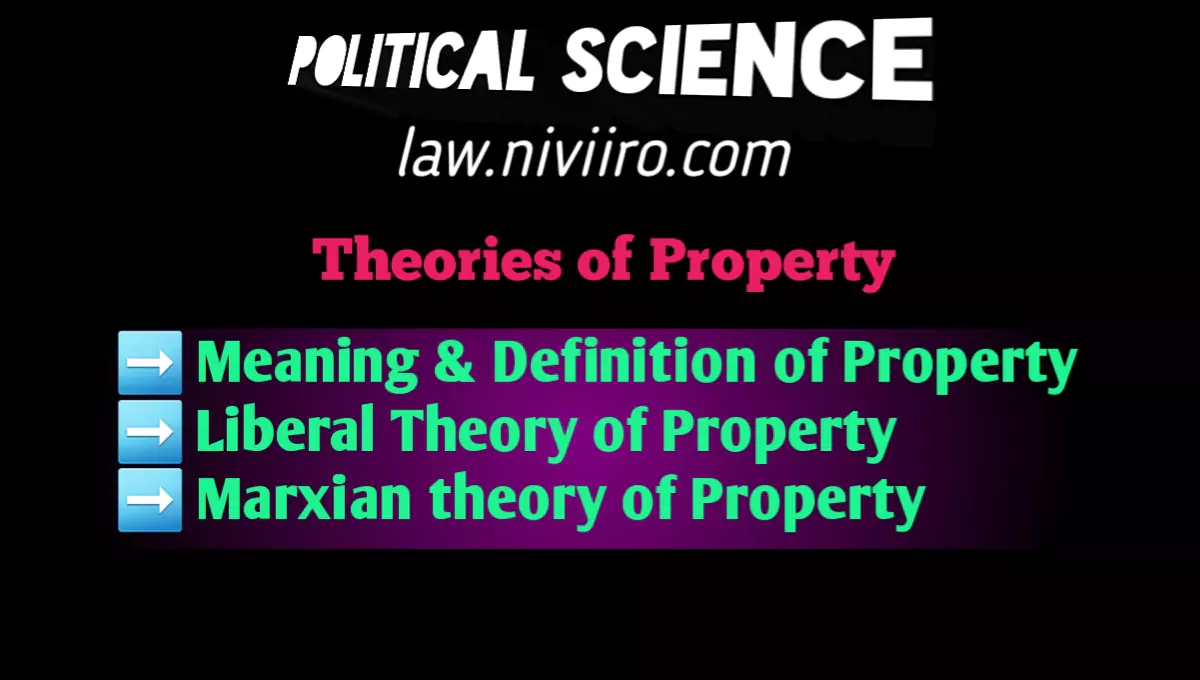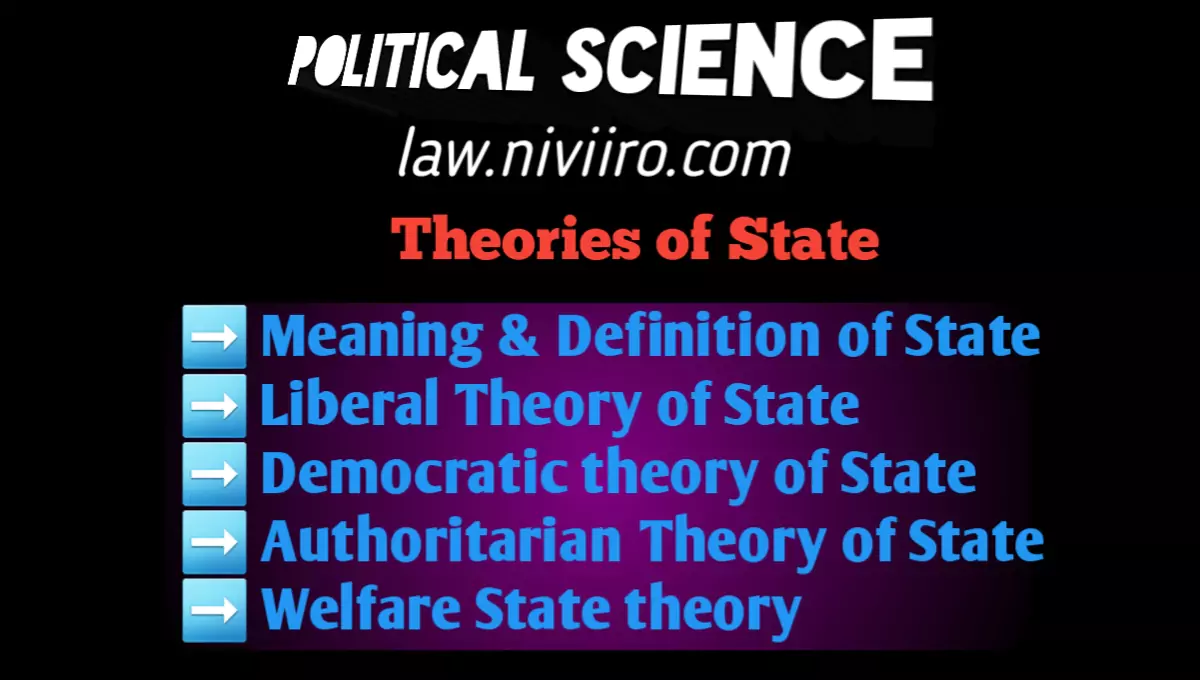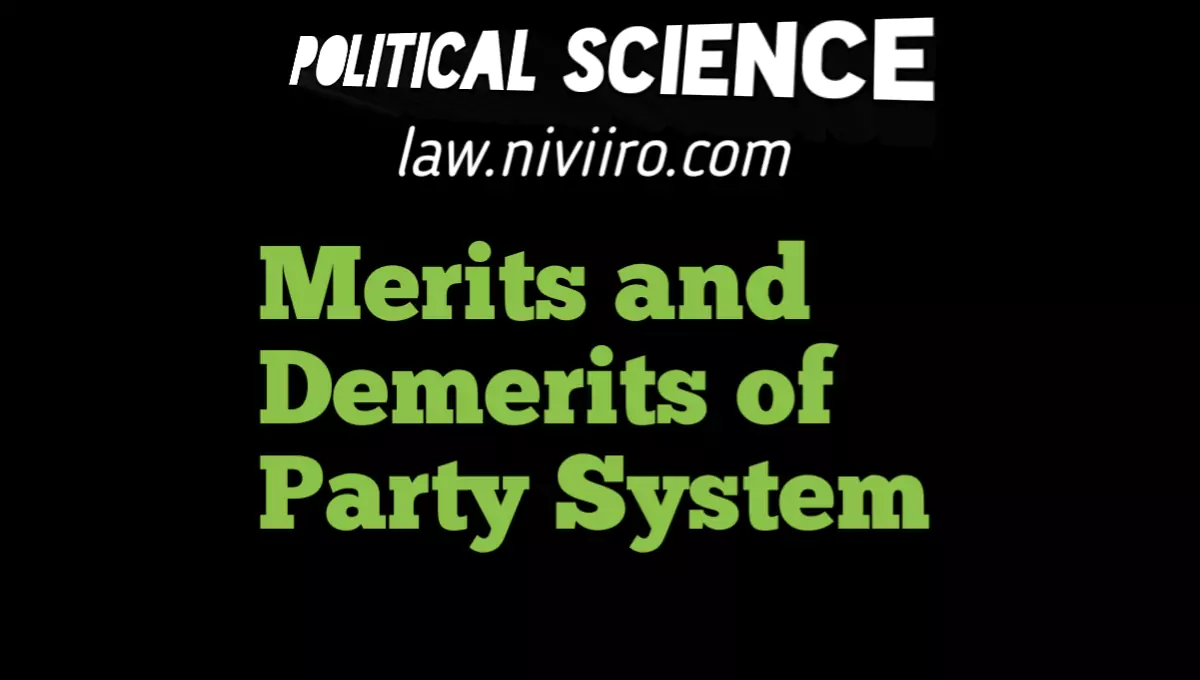Modern Perspective of Political Science – During the last two decades there has been an intellectual revolution in the American Political thought as Almond Powell and G. Bingham observed altogether new political concepts and new political theories have been invented. These new political theories have had a huge impact not just in the United States, but also in India. Almond, Powell, and other American writers have researched political science using sociological, anthropological, and psychological methodologies, and have attacked traditional political science theory for parochialism and formality.
According to these writers, political theorists in the past focused primarily on the state, government, institutions, and their legal norms, laws, and regulations, or on political concepts and ideologies. They were unconcerned about the performance of institutions, their interactions, or man’s political behaviour. As a result, contemporary American political writers focus on four fundamental principles: (1) the search of a broader scope; (2) the search of realism; (3) the search of precision; and (4) the search of intellectual order.
Definitions of Modern Perspective of Political Science
Definitions of Political Science according to Modern View Point:
Modern definitions of Political Science lay emphasis on scientific ’empirical’ study of politics. Some of the modern definitions of Political Science are :
- According to David Easton, “It studies the authoritative allocation of values that are binding in a society.”
- Laswell and Kaplan say that, “Political Science is concerned with power in general with all its forms in which it occurs….Power is the distributive and the aim of Political Science is to determine how and on what basis it is distributed.”
- Catlin defines it as ‘Science of Power.’
- According to Huszar and Stevenson; “Political Science is the field of study concerned primarily with the power relationships among men, between men, and the state and among states.”
- According to Laski, “Political Science is the study of human beings and their ways of life in organized society.”
Characteristics of Modern Perspective of Political Science
Revolutionary transformations in the nature and scope of political science have occurred in recent years. Modern Political Science distinguishes itself by emphasising empiricism. Dissatisfaction with the utopias scarched for making politics a science, alternative visions of society along informal lines, and a critical analysis of the basic principles of political and social sciences. The following are the main characteristics of modern political perspectives in political science:
1. Value Free Study – Values are maintained apart from facts in the modern approach. Today’s most scientifically minded theorists are bored with the fact-value debate and are flying to negotiate a ceasefire along the lines of dividing political theory into empirical and normative’ theories. The former would be theorising based on scientific methods of data collection and classification, as well as hypothesis testing using statistical or mathematical approaches. Its goal would be to have an experimentally validated hypothesis.
2. Factual and Realistic Studies – It entails rejecting all formality as well as the dominating concern with law, ideology, and governmental institutions. It examines the structures and processes involved in politics and policymaking. It investigates governmental processes such as rule creation, rule application, and rule enforcement, political parties, interest groups, election processes, political communication, and political socialisation. It stresses the study of dynamic political factors. It stands for polity behaviour research including practical empirical studies.
3. Use of Scientific Methods – The term “modern perspective” refers to scientific methodologies for doing political research. It is methodologically sensitive to a considerable degree. It promotes the application of the scientific method for the study of politics, which entails a formal and rigorously structured established pattern of investigation and research. It denotes the empirical investigation of pertinent data. Policy scientification is beneficial. It refers to the study of facts rather than values in political studies.
“The objective of contemporary political theory”. Observes, Dr. Haridwar Rai, “is to understand politics in the most comprehensive fashion possible to discover the general pattern and order in political facts, to explain these facts adequately, and to construct rules of political action based on this analysis.
4. Inter-disciplinary Approach– The modern approach makes use of various new and well-developed concepts, such as the political system. Political culture, political socialisation, structures and functions, power, influence, authority, legitimacy, political modernization, political development, and so on.
It emphasises the utilisation of information from other social sciences, particularly psychology, sociology, anthropology, and economics, as well as many concepts from natural sciences, for this aim. The scientific method and an interdisciplinary focus are recognised as necessary for political explanation and theory development.
5. Advocates a Comprehensive Study– The modern viewpoint recommends a complete study and comparison of all political processes in order to scientifically explain their nature and analyse the similarities and differences among the mechanisms at work in diverse political systems around the world.
It proposes a realistic examination of all formal and informal, governmental and non-governmental institutions and processes in terms of their actual operation within the context of the social-economic-cultural-psychological settings in which they operate. It rejects the old approach’s narrow configurative formalism. It promotes the study and comparison of all political systems, including those of Europe, Asia, Africa, and Latin America.
6. Close relation between Theory and Research – According to conventional wisdom, there is a close relationship between theory and research. Today, theory is a simplified statement of observations concerning the behaviour of some political institution, rather than a set of specific ideas or philosophical imagination. It explains and predicts the behaviour of like things further.
However, that remark or explanation is not conclusive. It must be adjusted, revised, and enhanced by additional research or observation of political phenomena. This theory-research interaction has changed the nature of the discipline significantly.
7. Use of Quantification Techniques– Scholars rely on the visible and measurable to understand and forecast political processes. The use of mathematical calculations is an essential component of all political studies. New computing devices have simplified their work. Quantification techniques have already impacted a huge portion of politics.
8. Use of Empirical Methods – Modern political theory, the operations of non-governmental organisations and groups, and the research of the impact on government actions were all receiving increased attention. In the study of institutions and organisations, there is a stronger inclination to apply empirical approaches. It emphasises factual empirical investigation.
There is a greater emphasis on what has been termed “research on systems in action,” or research on both the operational and formal sources and sequences of government. The empirical technique entails developing testable or verifiable propositions.
Scope of Modern Perspective of Political Science
The traditional definition and nature of political science is a corpus of knowledge concerned with the study of state and government. In the new or modern approach, political science is synonymous with politics, and the latter is chosen above the former. Political science encompasses the following aspects:
1. Study of the Concept of Power– With the political behaviour revolution, the study of ‘power’ has become the core issue of the most recent study in Political Science. Political Science, according to Charles Marriam, Laswell, Max Weber, and Catlin, is the study of power.
The main emphasis here is on power, which plays an important role in the fight in which individuals and their groups may be found embroiled depending on their capacity and level of interest at all levels-local, regional, national, and worldwide. Politics, according to Laswell and Kaplan, is the study of the formation and sharing of power.
Political science is the study of power, its exercise, and the battle for control over it. “Politics is organised debate about power and its application, involving choice among competing ideals, ideas, personalities, interests, and demands,” according to one definition. Politics is concerned with the description and analysis of how power is attained, wielded, and controlled, the purpose for which it is employed, how decisions are made, the factors that impact those decisions, and the context in which those decisions take place.
2. Functional Studies– Modern political science studies politics less from the standpoint of legal institutions and their powers and more from the standpoint of the functions that comprise the political process and their real functioning in the environment. It investigates interest articulation, interest aggregation, political communication, rule-making, rule-application, and rule-adjudication functions. Socialization, decision-making, and policy-making, for example.
3. Study of the Political System– Almond and David Easten are the prominent supporters of this technique. In its sociological context, this approach defines Political Science. According to them, society as a whole is a system, and the political system is a subsystem of that system. The system has a variety of functional structures, such as the state, government organs, political parties, pressure organisations, public opinion, elections, and so on.
An individual’s political behaviour is also a component. It is the study of the breadth of people’s actual behaviour in the political process. Voting behaviour, political engagement, leadership-recruitment elite behaviour, mass politics, population, and other aspects of political science are all intertwined.
Modern Politics seeks to analyse the actual behaviour and performance of the political system. The scope of Political Science includes the study of all structures-formal and informal; governmental and extra-governmental, which are directly or indirectly involved in the struggle for power taking place in the states.
4. Sudy of Human Behaviour– The emphasis in the study of Political Science switched from political institutions to the behaviour of individuals in political situations with the introduction of behaviouralists. They studied political systems using empirical methodologies. New assumptions, processes, and approaches were developed. New objectives for the study of political science were established. Political Science became associated with behavioural experiences. Political Science was concerned with the practical aspects of politics.
5. Study of Pressure Groups and Interest Groups – Every political system contains general groups. Some are founded freely by individuals to achieve specific and common goals, such as political parties, interest groups, and pressure organisations, among others. Furthermore, some groups emerge unexpectedly as a result of a specific occurrence and only exist for a brief time.
There are groups that express the wishes of the people through public meetings, symbols, programmes, demonstrations, and so on, and impact how the political system works. Political parties run for office, create governments, criticise governments, and so on. A student of modern political science scrutinises the structure, workings, and policy programmes of these organisations..
6. Study of Political Processes– In all political systems, political processes such as decision-making, policy-making, judicial process, leadership, recruitment process, and others are constantly at work. Every political system’s actual operation is dependent on these processes. As a result, it is now included in the scope of Modern Political Science.
7. Study of the Environment of each Political System– Politics requires a knowledge of the psychological, sociological, economic, and anthropological environments in which each political system operates. Political scientists have developed ideas such as political culture, political socialisation, political modernization, and so on to investigate this.
8. Study of Political Participation– Political participation is universal fact. The main distinction is that it is limited in certain states and broad in others. Political engagement gives the government legitimacy and stability because an administration that is built on the consent and will of the people and where the people participate is more likely to be legitimate and stable. A modern political scientist seeks to understand the elements that influence political involvement and its role.
9. Study of Power, Influence, Authority and Legitimacy– Modern political scientists place a strong emphasis on the study of ‘Power,’ ‘Influence,’ and ‘Authority,’ and utilise these notions to differentiate political systems. As a result, modern political science includes the study of ideas like as power, influence, legitimacy, and authority.
Conclusion of Modern Perspective of Political Science
As a result, the scope of Modern Political Science has expanded significantly. It encompasses everything related to political activity and political process. It aims to investigate all political mechanisms in order to develop a science of politics capable of understanding all political behaviours, processes, and systems.
Related Post | Modern Perspective of Political Science
Define Modern Perspective of Political Science ?
According to David Easton, “It studies the authoritative allocation of values that are binding in a society.”
Catlin defines it as ‘Science of Power.’
What are the Characteristics of Modern Perspective of Political Science ?
1. Value Free Study –
2. Factual and Realistic Studies –
3. Use of Scientific Methods –
4. Inter-disciplinary Approach–
5. Advocates a Comprehensive Study–
6. Close relation between Theory and Research –
7. Use of Quantification Techniques–
8. Use of Empirical Methods –
Explain the Scope of Modern Perspective of Political Science ?
1. Study of the Concept of Power– With the political behaviour revolution, the study of ‘power’ has become the core issue of the most recent study in Political Science. Political Science, according to Charles Marriam, Laswell, Max Weber, and Catlin, is the study of power. The main emphasis here is on power, which plays an important role in the fight in which individuals………………………
References | Modern Perspective of Political Science
- J.C. Johari, Political Science
- Foundations of Political Science, Dr. Sunita Gangwal
- Prof. H.C. Verma, Modern Political Theory
- V.D. Mahajan, Political Theory
- Prof. S.L. Verma, Modern Political Theory
- M.P. Jain, Political Theory liberal and Marxiam
- R.C. Agarwal, Political Theory













